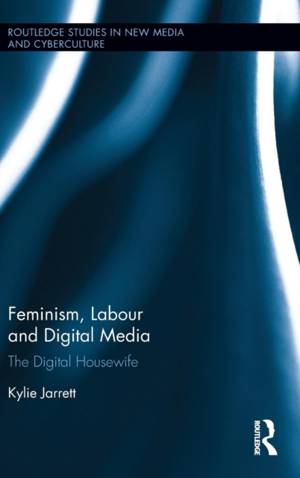
- Retrait gratuit dans votre magasin Club
- 7.000.000 titres dans notre catalogue
- Payer en toute sécurité
- Toujours un magasin près de chez vous
- Retrait gratuit dans votre magasin Club
- 7.000.0000 titres dans notre catalogue
- Payer en toute sécurité
- Toujours un magasin près de chez vous
Description
There is a contradiction at the heart of digital media. We use commercial platforms to express our identity, to build community and to engage politically. At the same time, our status updates, tweets, videos, photographs and music files are free content for these sites. We are also generating an almost endless supply of user data that can be mined, re-purposed and sold to advertisers. As users of the commercial web, we are socially and creatively engaged, but also labourers, exploited by the companies that provide our communication platforms. How do we reconcile these contradictions?
Feminism, Labour and Digital Media argues for using the work of Marxist feminist theorists about the role of domestic work in capitalism to explore these competing dynamics of consumer labour. It uses the concept of the Digital Housewife to outline the relationship between the work we do online and the unpaid sphere of social reproduction. It demonstrates how feminist perspectives expand our critique of consumer labour in digital media. In doing so, the Digital Housewife returns feminist inquiry from the margins and places it at the heart of critical digital media analysis.
Spécifications
Parties prenantes
- Auteur(s) :
- Editeur:
Contenu
- Nombre de pages :
- 180
- Langue:
- Anglais
- Collection :
Caractéristiques
- EAN:
- 9781138855793
- Date de parution :
- 03-12-15
- Format:
- Livre relié
- Format numérique:
- Genaaid
- Dimensions :
- 152 mm x 229 mm
- Poids :
- 430 g

Les avis
Nous publions uniquement les avis qui respectent les conditions requises. Consultez nos conditions pour les avis.






